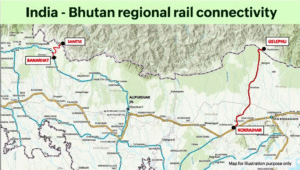
Organ Donation in India Set for Digital Overhaul
Real-time National Registry to Track Organ Allocation and Waiting Lists
CLAT Current Affairs 2026 | Legal Frameworks | Health Law | Public Policy
best online coaching for CLAT, online coaching for CLAT, CLAT current affairs 2026, organ transplant law India, NOTTO organ registry, transplant policy India
Why in News?
India’s apex regulator for organ donation and transplantation, the National Organ and Tissue Transplant Organisation (NOTTO), is working on launching a national-level real-time portal to track patients awaiting transplants, donors, and allocation approvals.
The goal is to create a “dynamic, transparent, and traceable registry” of all organ transplants and their recipients, allowing patients to see their own status in the waiting list and addressing concerns around illegal organ trade, favouritism, and delays in allocation. This move aligns with recent consultations held by the Union Health Ministry with national experts to improve transparency and public trust in India’s transplant system.
Point-wise Summary for CLAT Aspirants
- New Real-time Digital Organ Registry:
- NOTTO is building a national digital portal to register all patients in need of organs, track allocations, monitor approvals, and check outcomes.
- The new system allows patients to check their position on the waiting list — a feature absent in current mechanisms.
- Consultative Approach:
- This portal follows a major national consultation held recently, where experts called for transparency and centralization.
- 712 transplant centers, 31 state-level bodies, and 5 regional bodies will be connected through this platform.
- Development Collaboration:
- NOTTO is working with C-DAC (Centre for Development of Advanced Computing), an autonomous IT agency under MeitY, to build the portal.
- Patient-centric Focus:
- The system allows individuals to track their place on the list in real time.
- The design will include a dynamic national waiting list, enabling real-time updates based on scoring variables like age, disease severity, and organ match.
- Addressing Illegal Organ Trade:
- In response to growing incidents of illegal organ commerce, the portal aims to ensure transparency and reduce manipulation.
- Hospitals will be required to upload patient records, donor histories, and transplant outcomes, facilitating scrutiny.
- Mandatory Health Record Uploads:
- All hospitals must input patient histories, details of organ procurement, and follow-up outcomes.
- Audit-Proof Mechanism:
- Every transplant procedure will be logged.
- There will be a structured format to capture transplant success/failure, making data more scientifically verifiable.
- Expert Review and Approval Process:
- All allocation decisions will require review by a panel of expert clinicians.
- Their comments and evaluations will be added to the portal to prevent biased or fraudulent practices.
- State-wise Gaps in Data:
- Some states do not share patient-level data, offering only aggregated transplant numbers.
- The portal will seek to harmonize reporting standards across states for consistency.
- Non-uniform Scoring Systems:
- Currently, allocation criteria (age, disease severity, urgency) differ from one state to another.
- New platform to bring uniformity in scoring and fairness in allocations.
- Equity in Organ Access:
- States like Telangana, Maharashtra, Tamil Nadu, and Gujarat have well-developed systems.
- Others, especially in North India, lag behind.
- The national registry will level the playing field for all transplant candidates.
- Transparency on Donor-Origin and Recipient Matching:
- Information on organ origin, matching criteria, and final recipient decisions will be made available on the portal (without compromising privacy).
- Privacy Concerns & Safeguards:
- While patient tracking will be allowed, personal identities and medical details will remain confidential.
- Access to sensitive data will be limited to authorized clinicians and policy monitors.
- Push for Accountability and Public Trust:
- With organs being a scarce and sensitive public resource, the government aims to build public confidence through real-time transparency.
- Next Steps:
- Once the portal is rolled out, NOTTO plans to hold public webinars and hospital workshops to ensure smooth adoption.
- Stakeholders including doctors, hospitals, and transplant coordinators will be trained on using the portal.
Glossary & Concept Notes for CLAT Aspirants
Term | Explanation |
NOTTO | National Organ and Tissue Transplant Organisation — the nodal agency overseeing organ transplants in India. |
C-DAC | Centre for Development of Advanced Computing — tech body under Ministry of Electronics and IT. |
Organ Transplantation | Surgical procedure in which an organ is removed from one body (donor) and placed into another (recipient). |
Scoring System | Criteria used to prioritize patients on a transplant list based on medical urgency, organ match, waiting time, etc. |
Dynamic Registry | A live, frequently updated digital list of patients, organs, and allocation status. |
Illegal Organ Trade | Black-market buying/selling of human organs in violation of ethical and legal frameworks. |
Deceased vs Living Donors | Deceased donors have died (usually in ICUs); living donors donate organs like a kidney while still alive. |
CLAT Relevance: Key Areas Where This Topic May Appear
- Legal Reasoning
- Can be used as a passage on public interest law, right to health, data transparency, or organ trafficking regulations.
- Law aspirants may be tested on understanding of statutory bodies, patient rights, and due process in healthcare allocation.
- General Knowledge / Current Affairs
- Directly relevant for CLAT 2026’s health law updates, national governance, and ethical reforms.
- Also connected to Digital India, E-governance, and Right to Information.
- Reading Comprehension
- Ideal topic for comprehension passages where students must draw inferences about fairness, policy implementation, or public health rights.
Legal & Ethical Dimensions in Organ Transplants
- Legal Framework:
- Governed by the Transplantation of Human Organs and Tissues Act (THOTA), 1994.
- Regulates organ removal, storage, transplantation, and prohibits commercial dealings.
- Right to Health:
- Recognized as part of Article 21 (Right to Life).
- Transparent access to medical resources is essential for fulfilling this right.
- Ethics and Equity:
- Public health ethics demand fair allocation of limited organs.
- Digital registry increases accountability and equity in access.
- Technological Oversight:
- Portal ensures decisions are auditable, reducing the scope for arbitrary discretion or favoritism.
Potential Questions for CLAT Practice
- What legal instrument governs organ transplantation in India?
- Transplantation of Human Organs and Tissues Act, 1994
- What is the role of NOTTO?
- Regulates national-level policy, coordinates between states, monitors allocation and transplants.
- Which constitutional right is invoked in the context of organ access and transparency?
- Article 21 (Right to Life)
- Why is a dynamic national registry necessary?
- To bring transparency, reduce illegal trade, and ensure fair allocation across states.
Conclusion
The creation of a dynamic, real-time organ transplant portal by NOTTO marks a landmark reform in India’s public health landscape. With transparency, patient empowerment, and data-based monitoring at its core, this move strengthens both the legal and ethical foundations of India’s transplant framework.
For CLAT 2026 aspirants, this is a rich topic connecting public policy, constitutional law, medical ethics, and digital governance. Staying updated with such policy reforms not only improves exam performance but also builds awareness of how law shapes life-saving healthcare decisions.
Suggested SEO Tags for CLAT Gurukul:
best online coaching for CLAT, online coaching for CLAT, CLAT current affairs 2026, NOTTO organ transplant India, national organ registry India, THOTA Act India, organ donation policy India, public health and law, legal reasoning CLAT 2026
Would you like this content compiled into a downloadable PDF or turned into PowerPoint slides for your class presentation or blog post?




